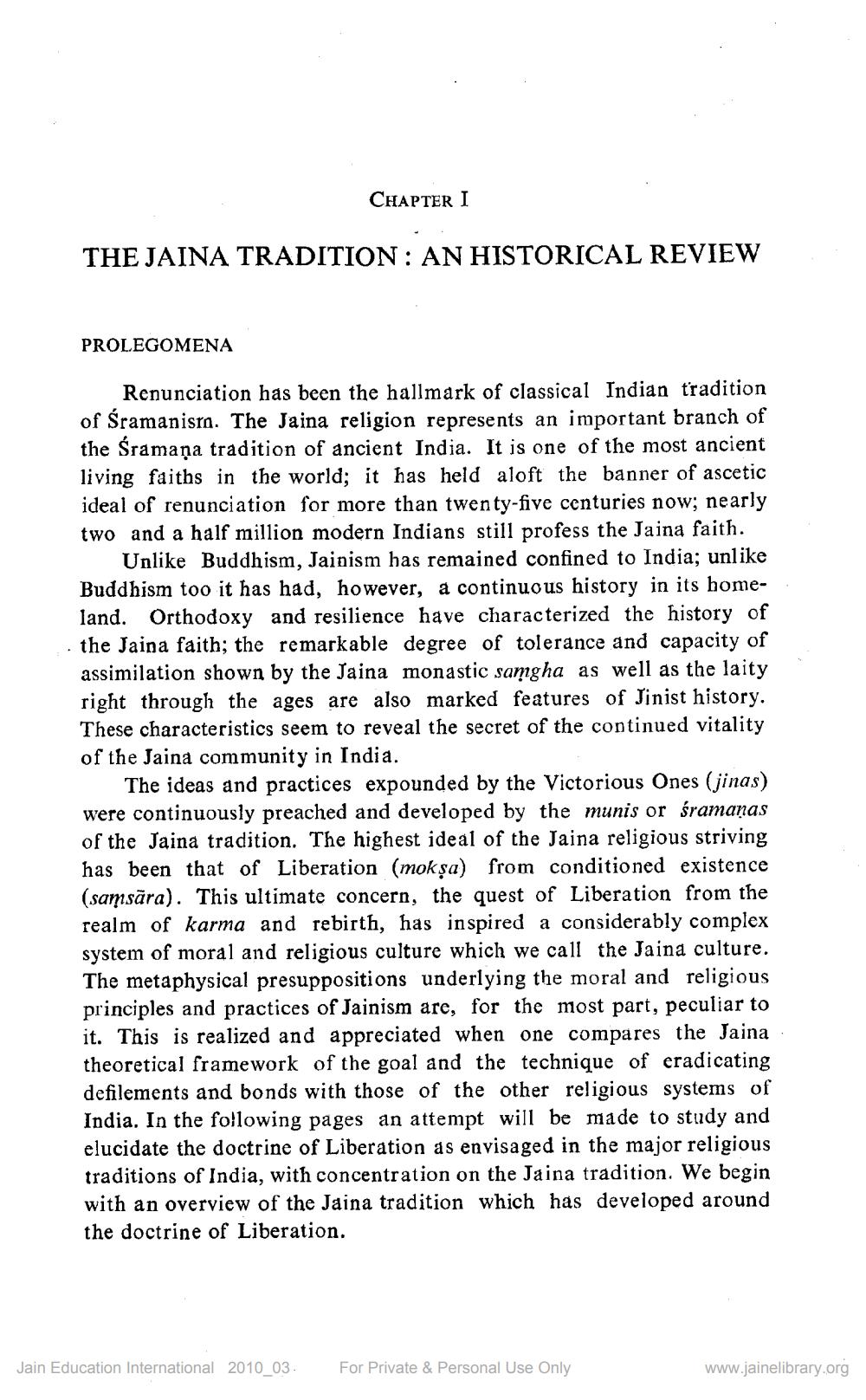________________
CHAPTER I
THE JAINA TRADITION: AN HISTORICAL REVIEW
PROLEGOMENA
Renunciation has been the hallmark of classical Indian tradition of śramanisrn. The Jaina religion represents an important branch of the Sramaņa tradition of ancient India. It is one of the most ancient living faiths in the world; it has held aloft the banner of ascetic ideal of renunciation for more than twenty-five centuries now; nearly two and a half million modern Indians still profess the Jaina faith.
Unlike Buddhism, Jainism has remained confined to India; unlike Buddhism too it has had, however, a continuous history in its homeland. Orthodoxy and resilience have characterized the history of the Jaina faith; the remarkable degree of tolerance and capacity of assimilation shown by the Jaina monastic samgha as well as the laity right through the ages are also marked features of Jinist history. These characteristics seem to reveal the secret of the continued vitality of the Jaina community in India.
The ideas and practices expounded by the Victorious Ones (jinas) were continuously preached and developed by the munis or śramaņas of the Jaina tradition. The highest ideal of the Jaina religious striving has been that of Liberation (mokșa) from conditioned existence (samsāra). This ultimate concern, the quest of Liberation from the realm of karma and rebirth, has inspired a considerably complex system of moral and religious culture which we call the Jaina culture. The metaphysical presuppositions underlying the moral and religious principles and practices of Jainism are, for the most part, peculiar to it. This is realized and appreciated when one compares the Jaina theoretical framework of the goal and the technique of eradicating defilements and bonds with those of the other religious systems of India. In the following pages an attempt will be made to study and elucidate the doctrine of Liberation as envisaged in the major religious traditions of India, with concentration on the Jaina tradition. We begin with an overview of the Jaina tradition which has developed around the doctrine of Liberation.
Jain Education International 2010_03:
For Private & Personal Use Only
www.jainelibrary.org




